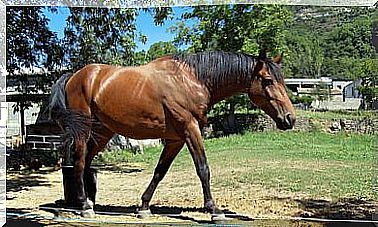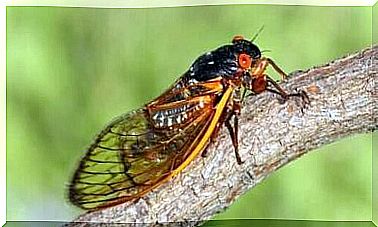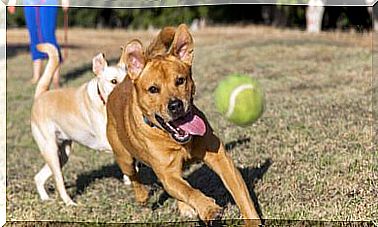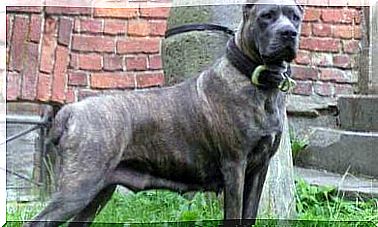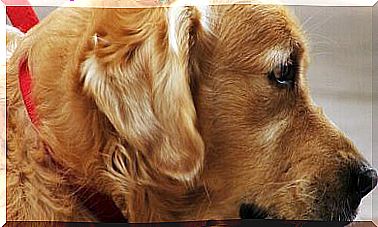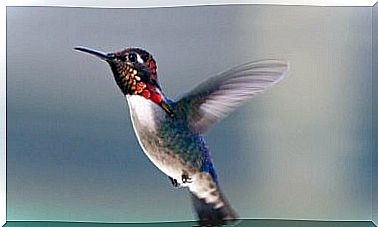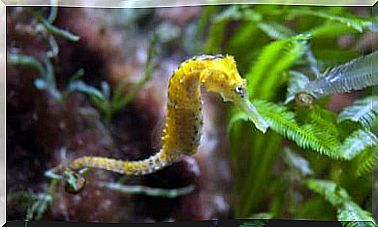Parrot Psittacosis
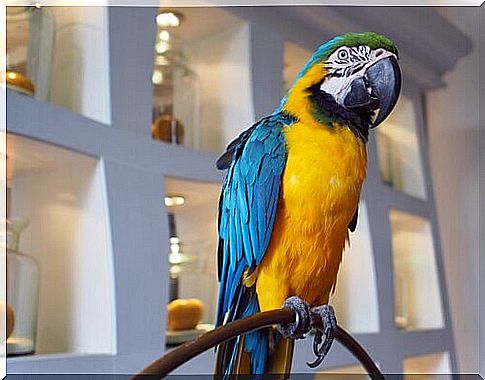
When we talk about psittacosis in parrots, we are referring to the so-called ornithosis or parrot fever. This disease is quite contagious and can pose a problem for our pet and even for us, so it is important to pay special attention to it, as it is a zoonosis.
Causes of psittacosis in parrots
Being an infectious disease, the only cause is infection through the bacterium Chlamydia psitacci . This bacterium is usually acquired by inhaling infectious particles of excrement, feathers, or eye and respiratory secretions from the infected animal.
Psittacosis can remain dormant in birds and only become active after a period of stress or some type of depression in parrots. This is not uncommon in these exotic bird species.
Symptoms of psittacosis in parrots
It is difficult to identify this disease with its signs. Psittacosis produces nonspecific symptoms similar to flu-like processes, among which are symptoms of respiratory and ocular abnormalities.
In addition, as we said, the disease can remain at rest and its ability to depress the immune system can cause the emergence of other diseases in caged birds. So, the clinical picture will be more complex.
Still, symptoms often include eye infections such as conjunctivitis, red eyes, and swelling, and increased secretions. Among the respiratory symptoms are increased nasal secretions and sneezing.
Weight loss, depression and diarrhea are other symptoms of psittacosis in parrots. Regardless of our suspicions, these symptoms should alert us to the importance of getting our pet to the vet quickly.
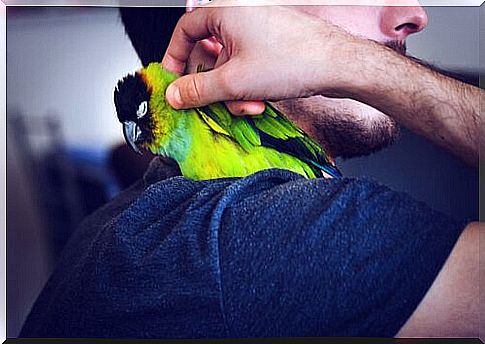
Diagnosis and treatment
Our veterinarian will perform diagnostic laboratory tests to detect the presence of chlamydia ( Chlamydia psitacci) , which causes this disease, in the animal’s feces or secretions. Or it is also possible to do this through blood tests for antibodies.
As for the treatment, your veterinarian will be the one to define it. However, as it is a bacteria, it will not be a complicated treatment and the treatment will be through antibiotics.
Given the contagiousness of this disease, it is advisable that, if you have several parrots, that the others also undergo the examination or receive treatment, in addition to being necessary to separate them to avoid contagion, if it has not already occurred.
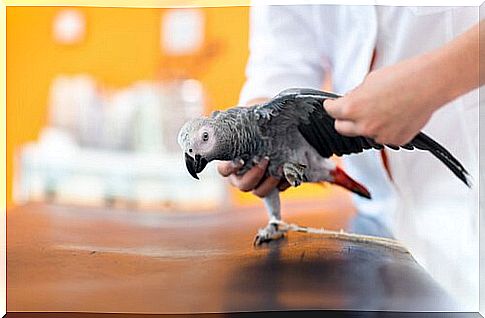
How to prevent the spread of psittacosis?
This disease can spread to other birds as well as people, so special care should be taken, although there is no need to be alarmed. Care must be taken with the hygiene of our birds’ enclosure, especially in overcrowded environments such as overcrowded and closed aviaries.
In people, psittacosis can have a flu-like appearance, but is especially worrisome in children, the elderly, and the immunocompromised. That’s why we should follow the veterinarian’s guidelines and even visit a health center if we notice symptoms of this disease in ourselves. Fortunately, it is easy to treat, both in birds and humans.
Also, it is important that, if we are to acquire a parrot, that it comes with the proper sanitary guarantees and that it makes its first visit to the veterinarian right away. If our bird is affected, it is highly recommended to take precautions in handling it:
- Wear gloves and a mask when cleaning the cage.
- Wash your hands after handling the bird.
- Follow your veterinarian’s instructions.
- Extreme cleanliness .

